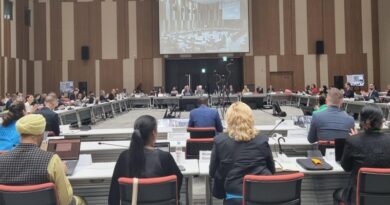$6.3m GEF pilot project achieves spectacular results
The Project for Ecosystem Services (ProEcoServ) funded by the Global Environment Facility to the tune of nearly $6.3 million set out to find ways to integrate the findings and tools of ecosystem service assessments into policy and decision-making in four pilot countries – Chile, South Africa, Trinidad and Tobago and Viet Nam.
Following recommendations by the Millennium Ecosystems Assessment, ProEcoServ sought to better integrate ecosystem assessment, and develop scenarios and economic valuation of ecosystem services to ensure national sustainable development planning.
The programme studied grass and drylands, forests, coastal and marine ecosystems at different scales, ranging from site specific, catchment, provincial, national, to transboundary scale.
ProEcoServ focused on national assessments, with the close involvement of national and local stakeholders. It developed tools, models and methods for decision-makers to mainstream ecosystem management approaches into development policies.
The project helped develop the capacities of decision-makers, as well as users and beneficiaries of ecosystem services, to assess trade-offs and development choices that contribute to strengthened biodiversity and ecosystem resilience. It also developed ecosystem management tools such as mapping and valuation of ecosystem services, trade-off analyses, etc.
UNEP, as the implementing agency, ensured the coordination of the overall global project approach, supported the countries in the implementation of national project activities, and established a horizontal knowledge exchange among project partners. Over 100 experts were involved in the execution of the project.
Achievements
National activities and the joint global activities of ProEcoServ have contributed to strengthening the policy and analytical framework for mainstreaming ecosystem services into development, removing critical knowledge barriers and building capacity in pilot countries.
ProEcoServ provided a good range of examples of how mainstreaming can work at different scales, for different ecosystem services, and in different institutional contexts.
“The hallmark of the project has been a clear demonstration of how the tools of economics can enable the integration of ecosystem services into development policies like poverty alleviation and regional development. This has been done at different decision-making levels and geo-spatial scales. Mainstreaming of ecosystems into sectoral resource allocation through accounting and valuation, and application of innovative tools like payments for ecosystem services at local scale has been exemplary,†says UNEP expert Pushpam Kumar.
The country teams and the global team have developed practical tools, guidelines, indicators and information for decision-makers. Over 90 technical reports were developed and disseminated by pilot countries.
ProEcoServ met its targets in terms of the integration of ecosystem services in policy and decision-making.
Maps and models
Country teams produced spatial maps of ecosystem services in all pilot countries.
The teams developed qualitative and quantitative models for different ecosystem services. For instance, in South Africa, the project piloted risk assessment using an ecosystem services-based management approach in Eden District; integrated ecosystem services into sustainable water resource management of Olifants Catchment; and addressed soil erosion and regeneration in a transboundary river catchment between Lesotho and South Africa.
In Chile, the project explored the use of Decision Support Systems together with the building of a participatory decision-making process so as to support the management of water provision and monitor tourism flows in the region.
In Trinidad and Tobago, selected ecosystem services, including forest soil retention services and pollination, were valued, and the results integrated into land use planning.
In Viet Nam the economic valuation results, and other ProEcoServ insights, helped inform the National Strategy for Green Growth and the National Strategy for Environmental Protection. “ProEcoServ was the first step in Vietnam for mainstreaming natural capital into development planning,” says Nguyen Van Tai, Director-General of the Viet Nam Environmental Administration.




